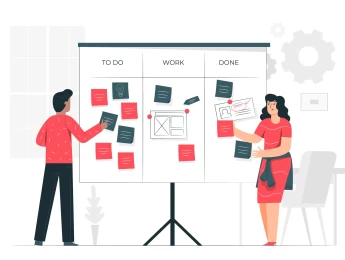This comprehensive foundation course offers an integrated understanding of DevOps principles and Site Reliability Engineering (SRE) practices, focusing on continuous integration and delivery (CI/CD), GitOps, and observability in modern IT environments.
Participants will explore how DevOps and SRE frameworks work together to improve software reliability, speed, and quality through automation, collaboration, and data-driven operations. The course blends theory with practical applications — covering pipelines, infrastructure as code, incident response, monitoring, and feedback loops — to help professionals streamline workflows and deliver resilient digital services at scale.
By the end of the programme, participants will be equipped with the skills to design and manage high-performing systems that align engineering excellence with organisational goals.
By the end of this course, participants will be able to:
- Understand the core principles of DevOps and SRE and their complementary roles.
- Implement CI/CD pipelines for automated software delivery.
- Apply GitOps for declarative configuration and infrastructure automation.
- Design and monitor observability systems for proactive incident management.
- Foster a culture of collaboration, reliability, and continuous improvement.
This course is ideal for:
- DevOps Engineers and System Administrators.
- Site Reliability Engineers (SREs).
- Software Developers and Cloud Engineers.
- IT Operations and Infrastructure Specialists.
- Project Managers and Technical Leads adopting DevOps practices.
The course combines instructor-led sessions, hands-on labs, and real-world case studies. Participants will design pipelines, simulate incidents, and apply observability tools to reinforce key concepts through practical experience.
Day 5 of each course is reserved for a Q&A session, which may occur off-site. For 10-day courses, this also applies to day 10
Section 1: Foundations of DevOps and SRE
- Understanding DevOps culture and philosophy.
- The evolution from traditional IT operations to continuous delivery.
- Core SRE principles: reliability, availability, and service-level objectives (SLOs).
- Bridging development and operations through shared accountability.
- The CALMS framework (Culture, Automation, Lean, Measurement, Sharing).
Section 2: Continuous Integration and Continuous Delivery (CI/CD)
- The CI/CD pipeline architecture and workflow.
- Automating builds, testing, and deployments.
- Integrating tools: Jenkins, GitLab CI, GitHub Actions, and Argo CD.
- Managing environments and rollbacks with version control.
- Best practices for secure and scalable release management.
Section 3: GitOps and Infrastructure as Code (IaC)
- Introduction to GitOps principles and benefits.
- Using Git as a single source of truth for infrastructure management.
- Popular GitOps tools and workflows: Argo CD, Flux, and Terraform.
- Automating environment provisioning and configuration.
- Policy enforcement, change tracking, and rollback strategies.
Section 4: Observability, Monitoring, and Reliability
- Defining observability vs. monitoring.
- Key metrics: SLIs, SLOs, and error budgets.
- Designing telemetry systems with logs, metrics, and traces.
- Tools overview: Prometheus, Grafana, ELK Stack, and OpenTelemetry.
- Incident response, alerting, and postmortem best practices.
Section 5: Building a DevOps & SRE Culture
- Continuous feedback and improvement loops.
- Collaboration between developers, ops, and business teams.
- Automation and measurement for scaling reliability.
- Managing change and reducing toil through SRE practices.
- Developing maturity models for DevOps and SRE adoption.
Upon successful completion of this training course, delegates will be awarded a Holistique Training Certificate of Completion. For those who attend and complete the online training course, a Holistique Training e-Certificate will be provided.
Holistique Training Certificates are accredited by the British Accreditation Council (BAC) and The CPD Certification Service (CPD), and are certified under ISO 9001, ISO 21001, and ISO 29993 standards.
CPD credits for this course are granted by our Certificates and will be reflected on the Holistique Training Certificate of Completion. In accordance with the standards of The CPD Certification Service, one CPD credit is awarded per hour of course attendance. A maximum of 50 CPD credits can be claimed for any single course we currently offer.
- Course Code PI1 - 142
- Course Format Classroom, Online,
- Duration 5 days








